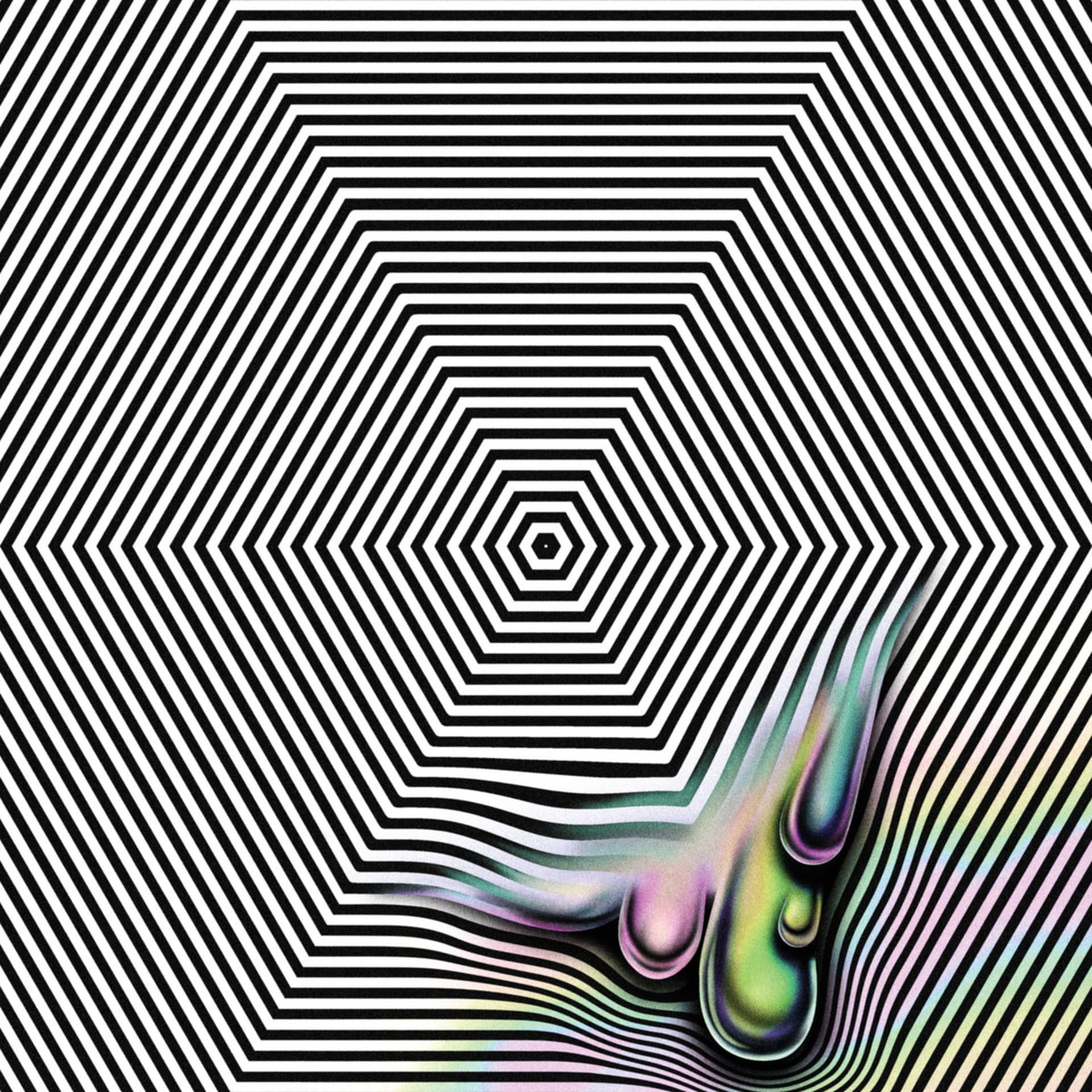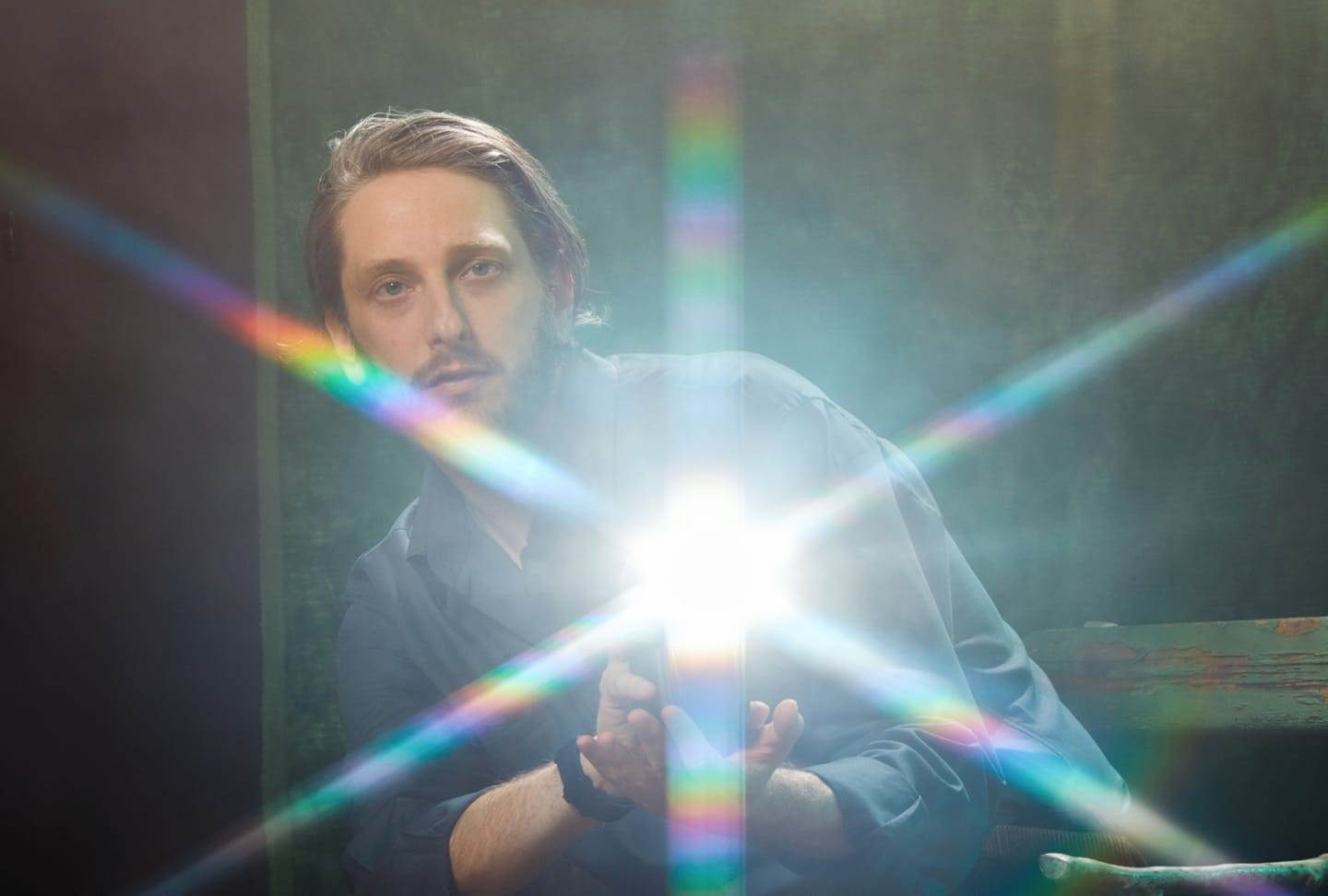

Oneohtrix Point Never’s Past and Future
On 'Magic Oneohtrix Point Never,' the pioneering electronic musician looks to his first albums as inspiration to move forward.
FM radio, ’80s ballads, retrofuturism, sonic impressionism
The W(h)eather Channel, loose recollections, guitar solos
shades of OPN’s older sound experiments filtering through his updated, cinematic lens
You turn the dial. Static. You turn it again. A cliché radio jingle followed by a booming announcer’s voice. You turn it once more, fine tuning as lush chords fight through interrupting signals and cross talk, offering you a fleeting moment of unexpected emotion before… shit, lost it. Static.
Magic Oneohtrix Point Never, Daniel Lopatin’s first album since 2018’s Age Of and a string of soundtrack work for films like Benny and Josh Safdie’s Good Time and Uncut Gems, is a sort of “back to our regularly scheduled programming” moment after several years of wildly differing releases. As one of experimental music’s most protean and pioneering projects, each OPN album feels like a complete departure from the sounds of his past. And while a sense of nostalgia for music’s bygone eras and genres runs as a consistent current through his catalog, it’s taken him until now to really be nostalgic for his own work.
This element will show content from various video platforms.
If you load this Content, you accept cookies from external Media.
Magic Oneohtrix Point Never, an ode to Boston’s FM radio station Magic 106.7 (which, you guessed it, inspired his artist name way back when), wraps Lopatin’s re-interpretations of his early discography in a series of “Crosstalk” interludes, featuring warped announcer voices that tie the album’s network of ideas together through spoken concepts. In “Cross Talk II”, an announcer states, “The music we grew up listening to doesn’t relate to our adult reality and our new dreams…Have you changed? And the answer to that is, uh, yes.”
While dipping his toes back into the cold trance deconstructions of R Plus Seven or the auto-tuned vocals and digital harpsichord lines that characterized Age Of, he does so with the lighter touch of a soundtrack composer, with less chopping and hard-cuts than he would have used in the past, letting each idea or texture grow and flourish before it shifts or gets lost in the static. This is most apparent on tracks like “The Whether Channel,” which moves between the two modes—one a very calm, blocky ambiance that feels like the sonic equivalent to old Windows 98 screensavers, and one a dynamic flurry of cold synths and prickling textures—before dropping into an ’80s-inflected take on modern, slurred rap.

On tracks like “No Nightmares”, which features frequent collaborator Abel Tesfaye (you know, The Weeknd) or massive standout “Lost But Never Alone”, Lopatin’s ideas coalesce into fully-realized ballads—romance, guitar solos, and all. Yet instead of being coated in sheen and compression, they’re pulled apart at the seams, presented blunted and raw.
Similarly to the pacing of his soundtrack work, these moments of clarity and somber emotion are offset by tense transitional moments, like the aggressive upturn of “Shifting”, which feels eerily similar to that moment in a science fiction movie when someone learns a terrible, life-changing secret, or when the captain turns the spacecraft into the abyss, realizing that the only way out is through. While mining the sounds and motifs of his past, it’s possible Daniel Lopatin came to the same realization. To quote “Cross Talk IV,” “If you’re looking for your last radio station, that sucker is gone.”
Listen to Magic Oneohtrix Point Never and support the artist on Bandcamp.
Zach Tippitt is an editor for Electronic Beats. Find him on Instagram.
This article was published
Published November 04, 2020. Words by Zach Tippitt.





